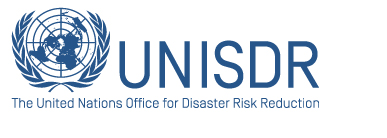The geology, tectonic setting, location and topography of Caribbean countries expose them to a variety of hazards; poor land use and environmental management practices often exacerbate the effects of these hazards. The region is at threat from tropical cyclone activity, floods, volcanic and seismic activities, droughts and bush fires, in addition to transportation and industrial accidents and epidemiological threats.
The Caribbean launch ceremony of the #IDDR 2014 was chaired by Cheryl Nichols, Director of Information and Training (Acting) of ODPEM. She mentioned that being part of the Caribbean, Jamaica knows disasters very well and highlighted that “the latest threat in the region is Chikungunya virus, which is also spreading throughout Jamaica and affecting many sectors”.
Jeffrey James, the Caribbean Representative, HelpAge International, referred to the connection on ageing and disaster risk: “A lot of older people are disproportionately affected by natural hazards. Underlining risk factors are poverty, poor housing structures, limited access to medical services and food as well as missing supporting system e.g. family and friends.” For these reasons “disaster risk management needs to reflect improvement in this regard. Leadership and knowledge of older people cannot be overlooked”, he said.
During the ceremony, ODPEM articulated an acknowledgement of the specific vulnerabilities and the contributions that older persons can make to disaster risk management and climate change adaptation. Richard Thompson, Acting Director General of Office for Disaster Preparedness and Emergency Management (ODPEM) highlighted the importance that older persons need to be safe in time of emergency. This can be done by including the group in resilient building at local, national, regional and global level. Older persons have a role to play in building resilience in communities. This is required especially in the context of being a Small Island State where one event can destroy the economy of the country.
Ronald Jackson, Executive Director of the Caribbean Disaster Management Agency (CDEMA), reflected that older people are considered in the Comprehensive Disaster Management strategy 2014-2024 amongst other vulnerable groups. He encouraged CDEMA participating States that strategies, programmes and plans should be integrative to increase resilience since “we are not only planning for older people, we are actually planning for ourselves”, said Jackson.
Maria Mangana, the representative of the National Council of Ageing in Belize, stressed that older people have a wealth of expertise and a lot to contribute in the field of disaster risk reduction (DRR); therefore, they should be involved in activities of preparation and reaction to disasters such as vulnerability and capacity assessments, inclusive family emergency plans, assistance in preparation of survival kits and first aid training.
In this regard, Jerry Velasquez, Chief of the Advocacy and Outreach section of UNISDR added that this collision of increasing global disaster risk and increasing numbers of exposed older persons must be addressed at every level to ensure that the impact of disaster does not continue to grow along with these trends. He further encouraged Caribbean and other countries in the Americas to take leadership to include the issue of DRR and older people into the new framework for DRR, which will be adopted in March 2015 in Sendai, Japan and will be the international blueprint for next 30-40 years.
Velasquez also presented the results of the global survey related to the IDDR 2014 theme. He reemphasized that even though older people are contributing to society only 9% of older persons that answered the survey confirmed to frequently participate in disaster risk management, 28% sometimes and 58% do not participate. Nevertheless, a high number is interested in getting trained to being able to participate.
The Caribbean launch ceremony of the #IDDR 2014 is part of the International Day for Disaster Reduction conference which takes place from 13 to 14 October 2014 in Kingston Jamaica. Its main organizers are HelpAge.
About the International Day for Disaster Reduction (#IDDR).
The #IDDR is a day to celebrate how people and communities are reducing their risk to disasters and raising awareness about the importance of DRR. It's also a day to encourage every citizen and government to take part in building more disaster resilient communities and nations. The theme of the International Day for Disaster Reduction 2014 is on older people, including their needs and what they contribute to better planning and understanding of disaster risk in their communities. #IDDR intends to switch on and amplify this critical issue now and for the post-2015 framework for disaster risk reduction.
The #IDDR started in 1989 with the approval by the United Nations General Assembly. The UN General Assembly sees International Day as a way to promote a global culture of disaster reduction, including disaster prevention, mitigation and preparedness. Originally celebrated on the second Wednesday of October, the UN General Assembly decided in 2009 to designate October 13th as the date to celebrate IDDR.
#IDDR: Resilience is for life.
As part of the activities related to the #IDDR celebration, UNISDR and HelpAge presented the results of two surveys related to ageing and DRR. The surveys are intended to further understand how older people are perceived in the context of disasters so as to identify not only their needs and requirements but also the valuable experience they can contribute.
UNISDR and HelpAge International are calling on governments to sign up to Charter 14 for Older People in Disaster Risk Reduction and commit to specific inclusion of older persons in all facets of disaster management planning with a strong emphasis on early warnings and evacuation procedures.
Related links:
International Day for Disaster Reduction (#IDDR).
Charter 14 for Older People in Disaster Risk Reduction
Broadcast of the event: www.tinyurl.com/IDDRJamaica
Survey for Older Persons in Potential Disaster Areas
English, French, Spanish
Perceptions on Older Persons in Potential Disaster Areas - Survey for governments and other disaster management actors:
English, French, Spanish




